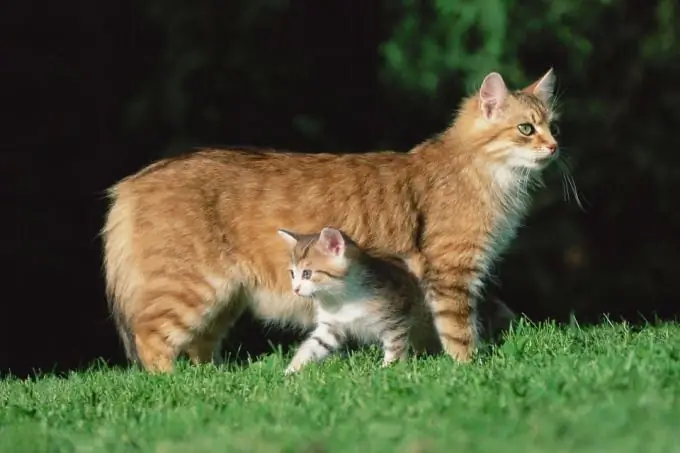- Author Delia Mathews mathews@animalspeace.com.
- Public 2023-12-16 00:05.
- Last modified 2025-01-22 15:45.
The average life span of cats is about 12-15 years. However, the question of how many years cats live is still asked by Internet users. The fact is that the lifespan of cats depends on a number of factors, for example, on what breed of an animal is, whether it has been sterilized, etc.

How long do cats and cats live, whose only home is the street throughout their life? Homeless representatives of the feline family live on average 5-6 years less than their domestic counterparts. On the street, many dangers lie in wait for them, in their life there is practically no love or affection, the deficit of which negatively affects the mental and physical health of the animal.
How many years do domestic cats live? To some extent, the breed influences the lifespan of Murok and Barsikov. Veterinarians claim that purebred cats live longer than purebred cats by an average of 5 years. As a result of artificial crossing of animals of different breeds, mutations such as a short tail (bobtails) or, for example, auricles turned outward (American Curl), are possible. And such mutations can pose a certain danger to the health of the animal, such as, for example, the gene for fold ears in Scottish Folds.
Unlike humans, both cats and cats live equally long. Therefore, when asked how many years cats and cats live, the answer is simple: "Same."
The state of the reproductive system also affects the age of baleen pets and pets. Castrated and sterilized representatives of the genus Felis silvestris catus live on average 3 years longer than usual.
A balanced diet and an active lifestyle increase the chances of living to a deep feline old age. If your pet has enough vitamins, minerals, fiber and protein in its diet, and it is mobile enough, the animal can live up to 20 years.
To help your cat live longer, do not neglect regular check-ups with your veterinarian. If you do not find fleas or helminths in a cat in time and do not remove fleas or helminths in a cat, and also do not deliver vaccinations on time, this can seriously damage its immunity, which will not have a positive effect on the life of the animal.






